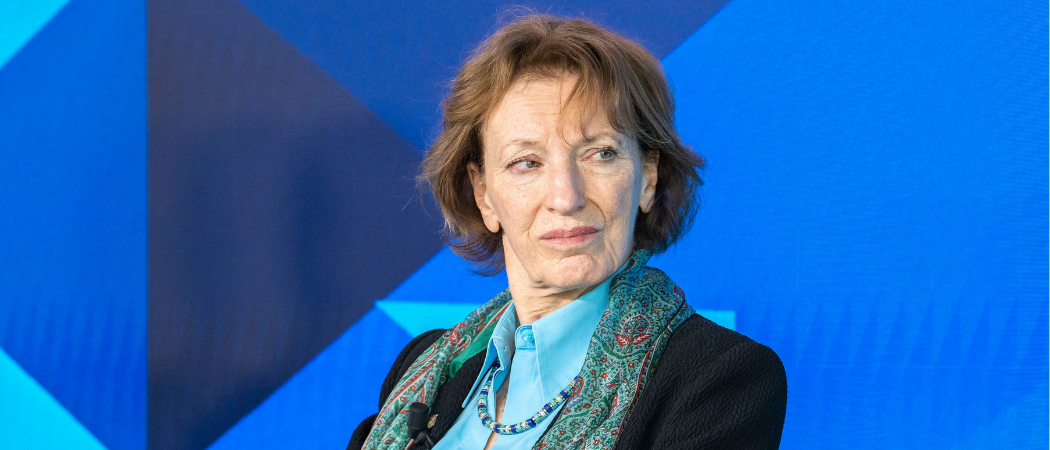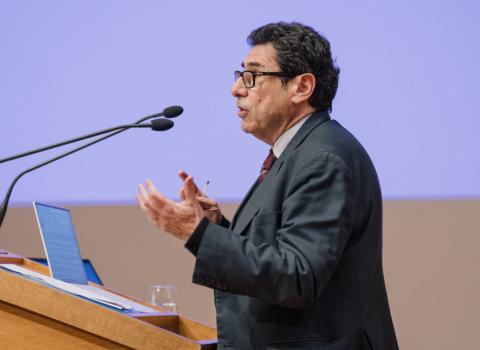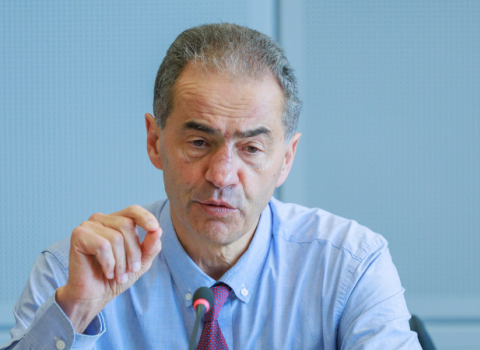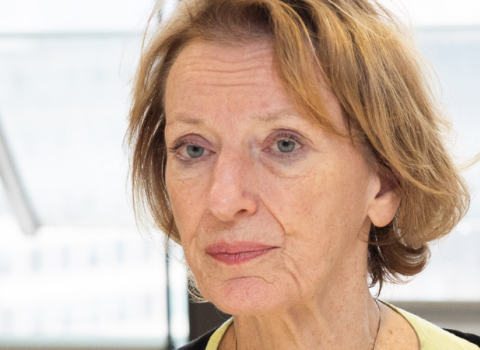European Research Council president Maria Leptin asks MEPs to ensure the council’s independence and increase its resources

Maria Leptin, president of the European Research Council. Photo credits: Jean-Luc Auboeuf / World Economic Forum
With concern for the future of the European Research Council (ERC) still in the air, its president Maria Leptin has called on the European Parliament to protect the council from attacks on its freedom and its resources.
“My message today is simple: an independent ERC with a doubled budget in the next MFF [Multiannual Financial Framework] is a strategic investment,” she told MEPs on the Industry, Research and Energy Committee on February 19.
The ERC appeared to be under threat last month when an early draft of the European Commission’s Competitiveness Compass suggested that it would need to operate “along the same strategic interests” as the European Innovation Council (EIC). This runs counter to the ERC’s approach of selecting projects based only on research excellence.
The final draft of the Compass moderated this language, but Marc Lemaître, the Commission’s director general for research and innovation, told delegates at a Science|Business conference earlier this month that “the ERC is not living in a vacuum.” Lemaître said the ERC “has an essential role to play for society, and I have no doubt that it is listening to the evolving demands from society, and today, yes, competitiveness is very high on that list.”
Leptin is keen to defend the ERC’s position. “Our simple, tailored procedures allow Europe’s best researchers to thrive,” she said. “Standardised bureaucratic processes designed for other programmes should not be imposed on the ERC.”
Unlike other parts of the Framework Programme, the ERC is governed by an independent scientific council, which has strongly resisted attempts to impose more top-down decision-making. In 2020, this led to the dramatic resignation of then-president Mauro Ferrari, after he tried and failed to convince the council to establish an initiative focused on the COVID-19 pandemic, to run in parallel with the ERC’s regular bottom-up research grants.
Higher budget, higher risks
The ERC accounts for 17% of the Horizon Europe budget, some €16 billion over the 2021-27 period. But its grants are “not as valuable as they were,” according to Leptin, as inflation has raised the costs of scientific work.
“When the ERC grants were initially devised, they were meant to be very attractive, not least to bring talent back from abroad or to act as a counter-offer for a talent that would be leaving Europe,” she explained. “That was 17 years ago.”
The grants have not changed for years, and if the ERC were to increase their size now, it would mean that fewer would be awarded in the remaining years of Horizon Europe. And they are “already unbelievably hard to get,” Leptin said.
Most ERC grants run for five years, with a budget of up to €1.5 million for starting grants, up to €2 million for consolidator grants, and up to €2.5 million for advanced grants. Applicant success rates are hovering around 15%.
The ERC is waiting for confirmation of the budget of FP10, the Framework Programme due to begin in 2028, before possibly revising the size and number of its grants.
Besides increased funding for the ERC, Leptin echoed other commentators by calling for broader efforts to close the innovation gap with the US and China. “We can’t afford to be just a consumer [. . .] and to rely on others for crucial components of our economy,” she pointed out. “We need policies that support disruptive innovation, help scale breakthroughs, ensure the right market conditions.”
Conservative by nature, peer-review committees often reject projects when unsure of their feasibility. On the contrary, she said, “we want stuff that’s never been done before and find excellent researchers who we trust to do that.”
She also sounded a warning about policy developments across the Atlantic. “The global innovation landscape is shifting and the policies of the current US administration could alter funding flows, regulations, partnerships,” she said. “It’s really quite unpredictable. We must therefore be able to act independently and autonomously and decisively.”





 A unique international forum for public research organisations and companies to connect their external engagement with strategic interests around their R&D system.
A unique international forum for public research organisations and companies to connect their external engagement with strategic interests around their R&D system.